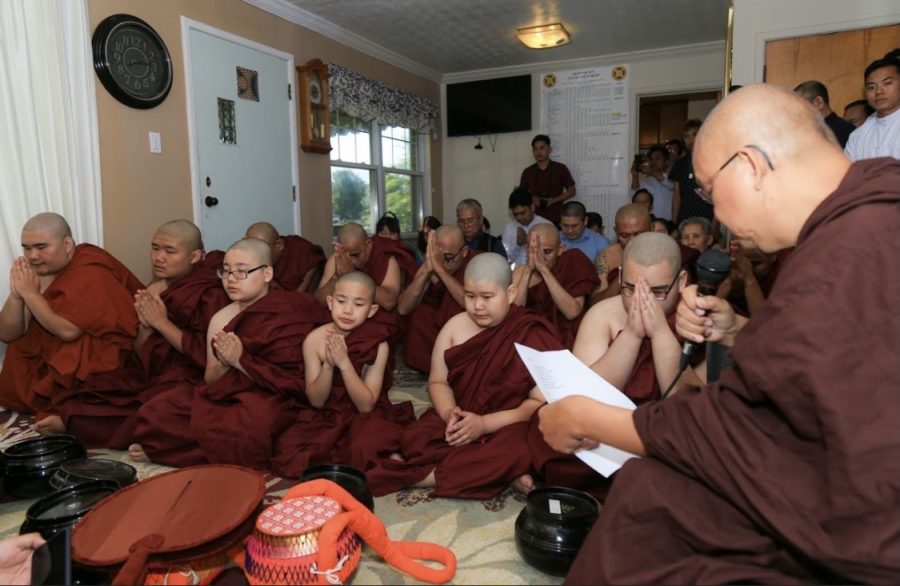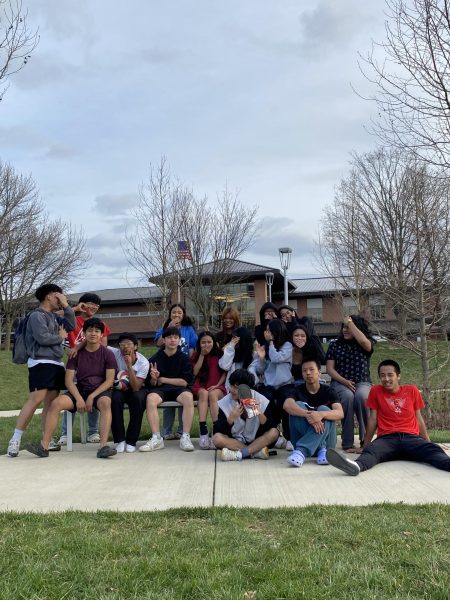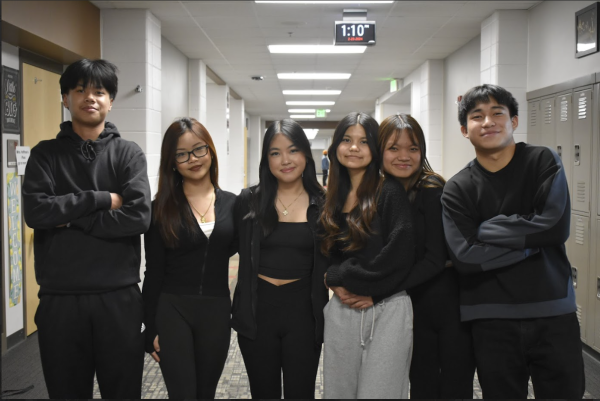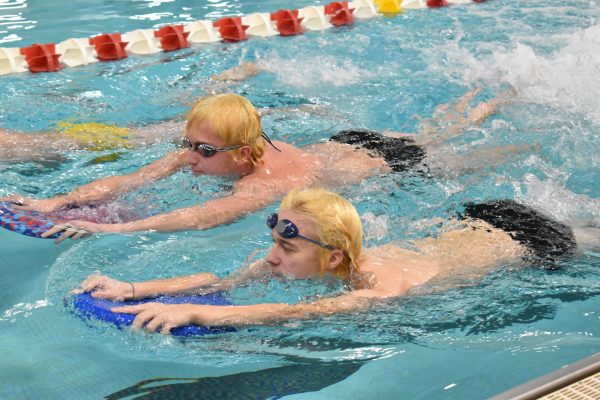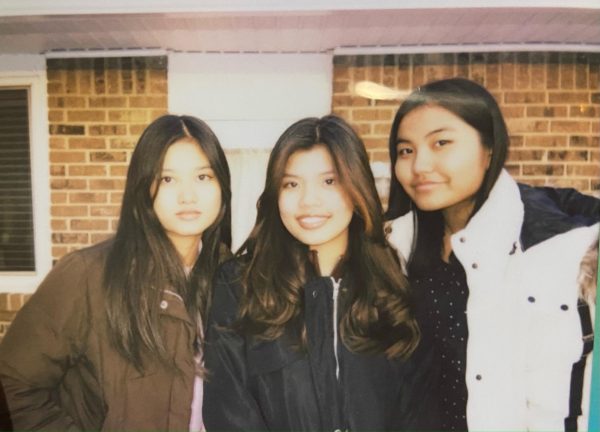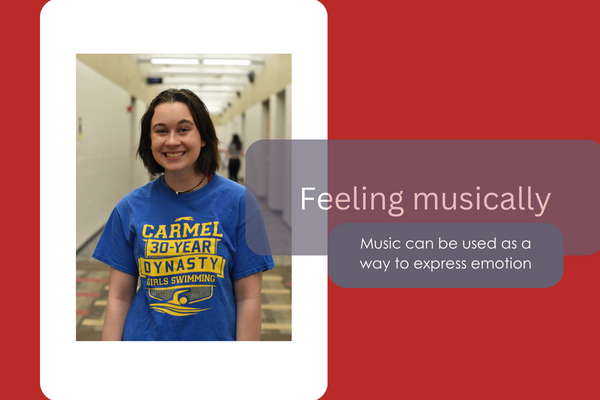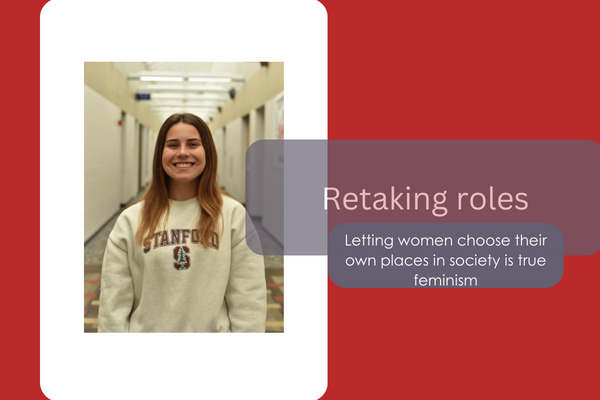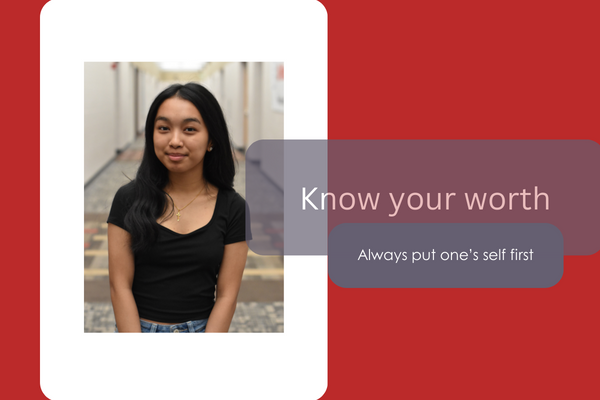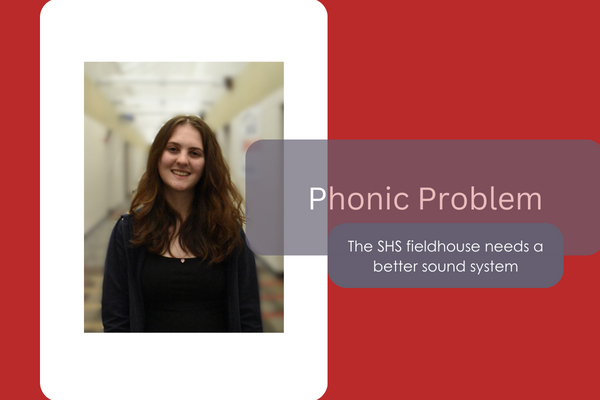Powerful Perspectives
SHS students reflect on their journey with Buddhism
(Starting from the second person on the left in the first row) Junior Khan Htoo Shwe, sophomore Shwe Thay, his little brother Andy Thay and sophomore Man Shar Tun meditate at a temple during June 2019. They’ve all taken away different lessons from this experience.
Two sophomore cousins, Man Shar Tun and Shwe Thay, along with their uncle, junior, Kan Htoo Shwe, sit in a lotus position on the floor of the Uttama Vihara Buddhist Monastery located on the south-side of Indianapolis.
Their heads are freshly shaven, and their casual clothes have been switched for traditional Buddhist monk clothing. They are beginning a week-long journey that will end up leaving a different impact on each of them.
“I see things differently now,” Thay said.
Thay offers one unique point-of-view on the experience. He is mixed, Burmese and Thai. He was in middle school when he went to the retreat.
He moved from Thailand before he could truly grasp or remember many details of the place. Even though his parents did not practice Buddhism before they immigrated, his grandparents did and still do. This is how he became connected to Buddhism.
Thay also says the retreat helped him let go of things easier. The experience as a whole, the driving beliefs of Buddhism and having to shave his head all contributed to that takeaway.
Although Thay and his family are not religious, his Thai ancestry has inevitably brought him back to the religion.
“The whole week I was there it was peaceful, quiet, relaxing,” Thay said. “It just opened something that made me grateful.”
Tun was also at the retreat. His family immigrated from Thailand and the different culture of the U.S. made it more difficult to practice their religion.
“Before we moved, our family did practice Buddhist traditions,” Tun said. “But the way of life here, with work and all of that, it didn’t give room.”
Tun said that the retreat was overall a serene experience. Their main activity was meditation, but they were also given time to talk to people and go outside. They didn’t have strict rules placed on them.
He still practices Buddhism along with the rest of his family. As he only lived in Thailand for the first few years of his life, he says he couldn’t fully immerse himself and grasp what the culture of Buddhism was like.
Shwe was the unintentional catalyst for this activity. His parents were planning on sending him there alone as a way to reconnect with his roots and to try and steer him away from media and electronics.
He says that he didn’t show any opposition to his parents on going, but he did encourage some of his other family members to come. His cousins, Thay and Tun and Thay’s younger brother, Andy Thay, were all at the retreat with him.
Shwe has a different connection to Buddhism and religion as a whole than the rest of his family members. He is an atheist. He has the closest connection to the retreat, but the furthest distance from religion.
All of them collectively had a positive experience that provided a new perspective on religion and self-reflection. Buddhism plays a more prevalent role in some of their lives, and virtually none for others.
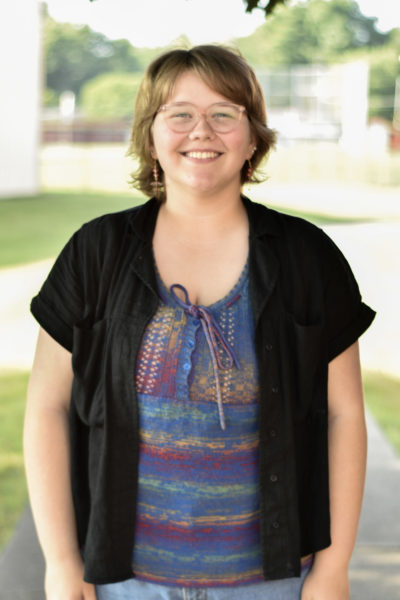
Nearly three years ago, on a fateful day in the spring of my freshman year I voted “Yes” on a Journal instagram poll about interest in making graphics....


